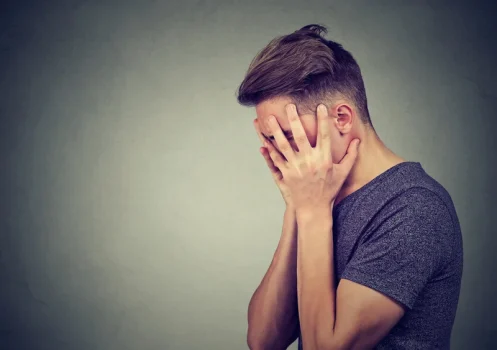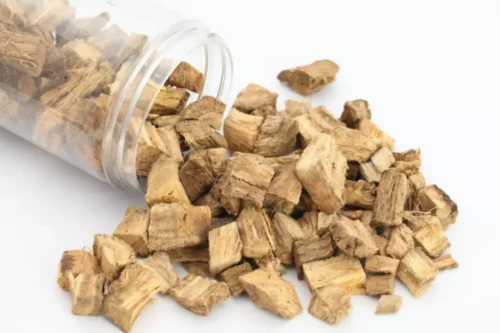
Depending on how long you have used alcohol and how much you typically drink, the severity of these symptoms can range from mild to severe. If you have a history of severe alcohol dependence, he recommends consulting a health care professional before quitting, as abrupt cessation can be life threatening. For those with an alcohol use disorder, there are effective prescription medications that can be helpful when abstaining from alcohol.

Your Skin May Improve
Plus, they can link you to support services and track your progress through follow-up visits. Choosing to live without alcohol not only reduces the risk of physical health problems but also mental health issues such as depression and anxiety. You may experience improved digestive well-being as you abstain from alcohol. The irritation alcohol inflicts on the stomach lining, often causing nausea and discomfort, diminishes. With heavy drinking, the liver and pancreas can become inflamed, leading to digestive issues.
Hangover Cures: Remedies That Work and Don’t Work
- Over time, heavy drinking can cloud your perception of distances and volumes, or slow and impair your motor skills.
- Heavy alcohol use is expensive, potentially costing you $800 each month or even more.
- Saving the money you would have spent on alcohol will provide you $300–$400 or more by this second week.
- If you drink heavily for weeks, months, or years, you may have unwanted physical and mental symptoms when you try to stop.
They can recommend treatment options that can help, including therapy and medications. There are many benefits to giving up alcohol, both short-term and long-term. If you’re considering quitting drinking, these benefits what happens when you stop drinking may be just what you need to help you decide. Of course, giving up alcohol is not always easy, and there may be some challenges along the way. But if you’re committed to sobriety, it’s possible to achieve your goal.
Make time for self-care

However, for people who exceed recommendations in the Dietary Guidelines for Americans, he said staying away from alcohol for a month can reap changes. Alcohol dependence can make it harder to think or remember things. Over time, heavy drinking can cloud your perception of distances and volumes, or slow and impair your motor skills.

months after you stop drinking alcohol:

Since alcohol can damage your cells, it may lead to DNA changes that increase your risk for certain cancers, particularly liver, colon, and rectal cancer. In fact, alcohol use accounts for 6 percent of all cancers and 4 percent of all cancer deaths in the U.S. It may make you feel drowsy and fall asleep quickly—but later in the night it messes with your sleep patterns as it works through your system.
Symptoms of Alcohol Withdrawal
- This explains random breakouts and any sensitivity you may be experiencing, as your skin barrier is weakened.
- It can even make it harder for you to read other people’s emotions.
- Alcohol misuse can lead to serious health problems like liver disease and cancer.
- Realizing that you want to stop drinking is important, but actually stopping can be easier said than done.
Researchers found some women who’d received an alcohol “infusion” equivalent to about two drinks ate 30% more food than those who’d received a saline solution. Even mild intoxication increased the women’s brain activity in the hypothalamus, making them more sensitive to the smell of food and prompting them to eat more. Even if you don’t drink a lot, the end of an alcohol-free month is a good time to reflect on your relationship with alcohol. “You may notice an increase in mental clarity and memory, [since] alcohol use can impact concentration and memory,” he explains. A counselor can help someone prepare for life after withdrawal and provide support as they navigate quitting drinking.
- These conditions include gastrointestinal bleeding, infection, intracranial hemorrhage (acute bleeding in the brain), and liver failure.
- If you are still experiencing withdrawal symptoms after three days, talk to your healthcare provider.
- This is because alcohol can cause dehydration, which can lead to dry, dull skin.
- Alcohol withdrawal symptoms range from mild but annoying to severe and life-threatening.
Your Liver Will Start to Repair Itself
- “You get the best benefit from alcohol when you drink in moderation.
- He noted that people of Chinese and Indian descent do not benefit from drinking alcohol due to a genetic reason that isn’t fully understood.
- Whether you’re challenging yourself to a no-drink stint (hello, Dry January) or considering cutting back on alcohol in general, your body can experience some real changes when you stop drinking.
- This includes beer, wine, and liquor, as well as products that contain alcohol such as rubbing alcohol and vanilla extract.
- But if you drink alone, or down multiple drinks a day, it could turn into an unhealthy habit.
Your level of risk will depend on how much alcohol you have drunk over the long-term, as well as other factors like family history and lifestyle. But, as drinking even at low levels increases the risk of these diseases, deciding to stop drinking completely is a positive choice. When you’re ready to stop, there are lots of benefits – from reducing your blood pressure and better sleep in the short-term, to many other important longer-term health benefits. Within a few days, you’ll notice your skin looking and feeling more hydrated. That’s because alcohol is a diuretic, causing you to urinate more, Raskin says.
It may be easier on your rehabilitation to skip visits with “drinking buddies” or avoid gatherings with a focus on drinking. Talk to your doctor or a drug treatment specialist about what to expect as you experience alcohol withdrawal. Identify a family member or friend who you can call on to provide emotional support. They think it has something to do with how fast or slow your brain adapts during recovery. Sometimes called alcoholic hallucinosis, these can show up within 12 to 24 hours after you quit.

What Alcohol Does to Your Body
Cirrhosis of the liver (severe scarring of the liver) can occur over time in those who drink excessively. But anything more than a drink or so a day has the opposite effect, especially if you abuse or are addicted to alcohol. Start by talking to your doctor about how much alcohol you’ve been using and your plan to quit. It’s important that you work with your doctor when you’re ready to stop drinking rather than trying to do it alone.
Another clue that can be an indication of an unhealthy relationship with alcohol is if you make “rules” around drinking. “A short-term break from alcohol will allow the liver cells to recover from the persistent toxic injury from the alcohol,” Larson said. Alcohol is also linked to poor sleep quality, so you might feel more energized after a week without alcohol, she added. If you stop drinking for a week, you might notice some positive changes in your gastrointestinal system.